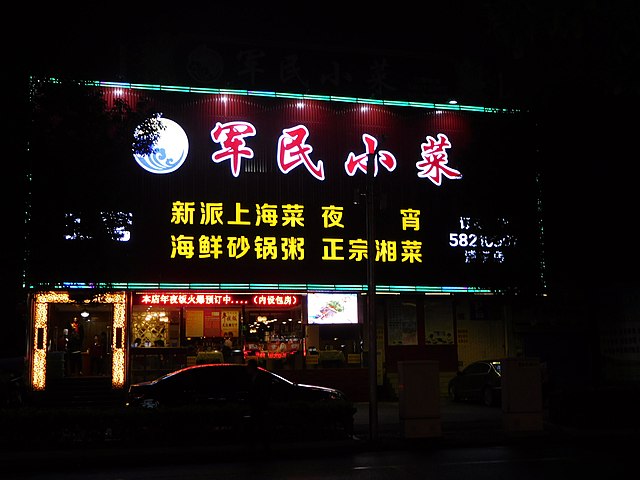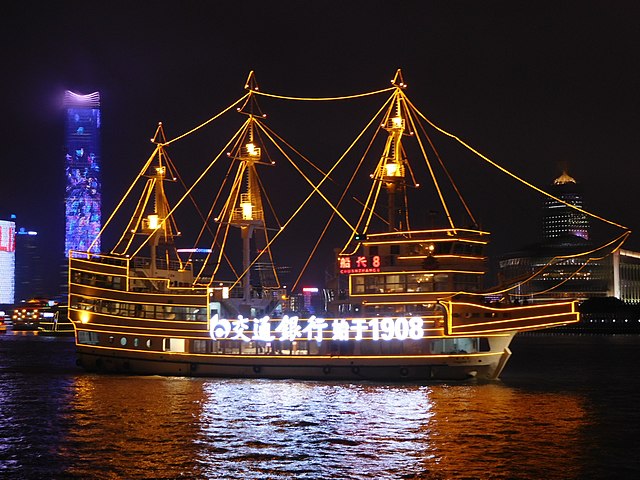
Thammasat University students who are interested in China studies, political science, sociology, economics, literature, culture, law, media and communication studies, environmental studies, international relations, cultural and social anthropology, public policy, and related subjects may find a newly available book useful.
Utopia and Modernity in China: Contradictions in Transition is an Open Access book, available for free download at this link:
https://library.oapen.org/handle/20.500.12657/57971
The TU Library collection includes many other books about different aspects of modernization in China.
As the publisher’s description of the book notes,
The contradictions of modernisation run through the whole of modern Chinese history. The abundance of manufactured goods being sold in the west attests to China’s industrial revolution, but this capitalist vision of ‘utopia’ sits uneasily with traditional Chinese values. It is also in conflict with the socialism that has been the bedrock of Chinese society since the foundation of the People’s Republic in 1949. Utopia and Modernity in China examines the conflicts inherent in China’s attempt to achieve a ‘utopia’ by advancing production and technology. Through the lenses of literature, arts, law, the press and the environment, the contributors interrogate the contradictions of modernisation in Chinese society and its fundamental challenges. By unpicking both China’s vision of utopia and its realities and the increasing tension between traditional Chinese values and those of the west, this book offers a unique insight into the cultural forces that are part of reshaping today’s China.

The book begins:
…China is the world’s oldest continuous civilisation. That continuity suggests overtones of peace and tranquility, but its last century was anything but tranquil – it was a century of revolution. The Xinhai Revolution of 1911 established a republic and put an end to dynastic structures. After the defeat of the Japanese in the Second World War, Chairman Mao Zedong led the Communist Party of China in the War of Liberation which resulted in the proclamation of the People’s Republic of China in 1949. Less than two decades later, in 1966, Mao launched the Great Proletarian Cultural Revolution which produced a decade of economic and social turmoil. In 1978 Deng Xiaoping became leader and began a programme of economic modernisation which opened the country to neo-liberalism under the watchful eye of the socialist state. It is important to have some understanding of these transformations, not simply because China is a great power, but because all of us now live in the throes of equivalent transformations: fundamental conflicts of values, economic systems that are failing the general population, and social organisation that is based on inequality. Understanding something of the conflicts involved in China’s process of modernisation should be instructive in our own situation. Utopia and Modernity in China was conceived in the hope that discussions of those value contradictions embodied in the Chinese experience can provide English-language readers with a perspective useful for making sense of their own condition. In less than a year, three crises have entered public consciousness in the West. The most obvious, of course, is the Covid-19 pandemic. Because it threatened lives among most of the population, its importance penetrated the barrier of indifference and raised fundamental questions of priorities with regard to the well-being of the population and the economic life of the country. It also raised related questions about government responsibility in matters of health, care for the elderly, children and their education, patterns of work and employment, housing conditions, and the relation between health and the environment. Then, the police murder of George Floyd sparked the rise of the Black Lives Matter movement. That raised another series of questions, some of them related to issues raised by the pandemic – issues people felt that they could do something about. The massive response led to explicit recognition among public and private institutions that structural discrimination was indeed a crisis.
The climate and environment are the third crisis. Despite many writers who, since Rachel Carson’s 1962 book Silent Spring, have raised their voices about the destruction of the environment and the severe consequences for human life, these issues have been slow to enter public consciousness. Greta Thunberg’s high profile and the XR (Extinction Rebellion) protests, which blocked central London traffic, helped raise awareness, and the wildfires and floods of 2021 have shown the crisis to be real and to be global. However, we have yet to see any serious change in practice from governments. But the new willingness of people to question received positions and even to consider different ways of organising society is a very important
change. The questions about social values and social organisation raised by such national and international disruptions are fundamental. They have always been fundamental, but the current crises have brought into consideration across the whole society issues that a few months earlier would have been considered abstract idealism. Perhaps there are alternatives to letting our lives be dominated by the internal combustion engine and personal vehicular transport; perhaps commuting to work should not be a necessary imposition for earning a living. Should everyone have to be an earner to enjoy the benefits of society? What value are we willing to give to clear skies and the return of birdsong? Lockdown has changed our awareness of the centrality of human relationships. The self-justifications of the UK government over its failure to deal effectively with Covid-19 have thrown into question social priorities – not just health vs economy but the fundamental principles on which society should be organised. China’s successful management of lockdown was not just a matter of enforcement: China, now as well as traditionally, has a more developed social consciousness – individuals willingly endure their own discomfort when it is necessary for the well-being of the wider population – whereas the UK and US have seen widespread selfish unwillingness to wear masks and observe social distancing. The opposition of utopia and modernity may appear to have limited significance in the UK and the US, where ‘utopia’ is usually applied to ideal, unrealisable conditions and ‘modernity’ primarily refers to being up-to-date (the opposite of ‘old fashioned’), the expected condition in modern society. Change and development are the mode of existence; novelty is a major aspect of a consumer society. With regard to China the opposition is more complex. This is partly because modernity was not so much a welcoming of progress as a necessary condition for defending the integrity of the state. The Opium Wars of the nineteenth century had shown that millennia of culture were no defence against the latest military technology, and the definitive defeat of China by Japan in the First Sino-Japanese War (1894–1895) was both a shock and a humiliation. At that point, modernisation was clearly necessary and it could not simply be an ‘add-on’. The ‘renovation’ had to include social culture – the current culture included the ancient, which placed a high value on continuity and shunned confrontation. Thus, the process of modernisation necessarily involved value conflicts at the deepest level.

(All images courtesy of Wikimedia Commons)
